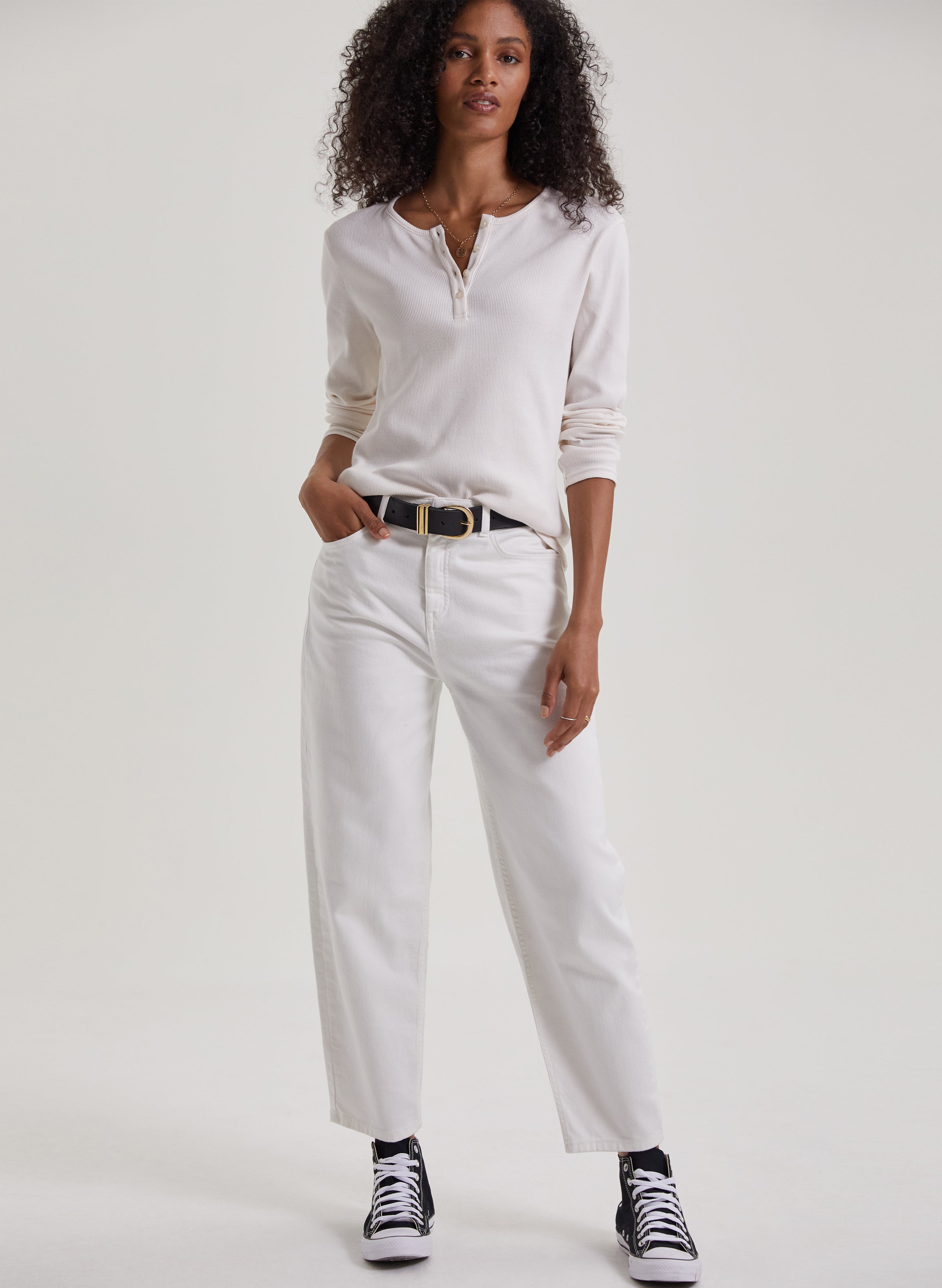Baukjen Organic Barrell Leg Jeans

Fits true to size, we suggest ordering your normal size.
A jean for all seasons - literally. Why? Because the Barrel’s tapered fit around the ankle will see you through summer with sandals, then sit neatly above ankle boots come autumn (and yes, white jeans are a winner year-round in our book!). Their shape is fitted around the waist and hips, then loose through the leg before nipping in again at the hems. So easy to style, these are our new go-to.
"There’s no better way to refresh your wardrobe for a season than a new pair of jeans. The 'Barrel Leg' is a flattering loose cut, widening gently at the knee, and cropped at the ankle. It will look great worn with everything from Summer through to Autumn." - Natalie, Design Director

Organic Cotton grown in Turkey

Yarn spun in Adana, Turkey

Denim woven in Adana, Turkey

Jeans sewn in Istanbul, Turkey

Jeans washed in Istanbul, Turkey
99% Organic Cotton, 1% Elastane
- Denim should be washed as sparsely as possible – avoid washing if you can
- Wash inside out
- Delicate Machine Wash - 30
- Air dry

78%
What
We rate each product on its environmental and social impact. The higher the score (1 to 100), the more sustainable a product is for the planet and its people.
How
We measure our positive impact as accurately as possible by using secondary Lifecycle Analysis data combined with reports from our suppliers. This data is science-based and relies on independent databases, to ensure its reliability.
Read more here.
Baukjen Sustainability Impact

Global Warming
78.4%
Water Use
75.7%
Resource Depletion
68.7%
Eutrophication
79.9%
Use of Chemicals
74.9%
Traceability
94%


